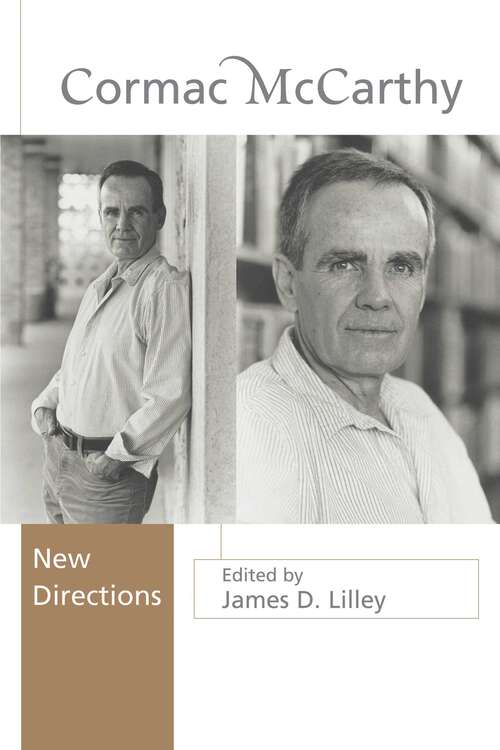
Cormac McCarthy: New Directions
Criticism
Synthetic audio, Automated braille
Summary
Even before Harold Bloom designated Blood Meridian as the Great American Novel, Cormac McCarthy had attracted unprecedented attention as a novelist who is both serious and successful, a rare combination in recent American fiction. Critics have been quick to address… McCarthy&’s indebtedness to southern literature, Christianity, and existential thought, but the essays in this collection are among the first to tackle such issues as gender and race in McCarthy&’s work. The rich complexity of the novels leaves room for a wide variety of interpretation. Some of the contributors see racist attitudes in McCarthy&’s views of Mexico, whereas others praise his depiction of U.S.-Mexican border culture and contact. Several of the essays approach McCarthy&’s work from the perspective of ecocriticism, focusing on his representations of the natural world and the relationships that his characters forge with their geographical environments. And by exploring the author&’s use of and attitudes toward language, some of the contributors examine McCarthy&’s complex and innovative storytelling techniques.